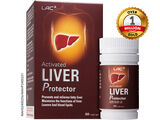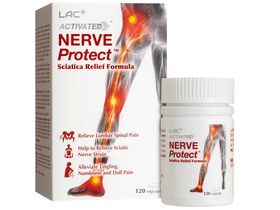Feeling Stressed?

Stress can keep us sharp but too much can get us down. Find out how you can manage stress and take care of your mental wellbeing!
Do you know? Stress can be categorized into 4 categories.
Acute Stress
A very short-term kind of stress that we experience most often in our day-to-day lives. Acute stress goes away once we have resolved the issue/situation causing the stress.
Chronic Stress
Those who suffer from chronic stress typically feel that the cause of their stress is insurmountable and never-ending. This form of stress can make the person feel very oppressed, leaving him/her feeling like there’s no way of escape. Examples include the long-term stress of managing a toxic relationship, a toxic work environment, having to deal with overwhelming & crushing debt. Chronic stress can also stem from traumatic experiences and childhood trauma.
Episodic Stress
Episodic stress occurs when a person is constantly going through and experience acute stress so much that it almost becomes a way of life. An example of episodic stress are persons who might be working in a highly stressful job, with multiple pressing projects, too many fires to put out and too many unrealistic timelines to meet. Stress symptoms can include sudden, uncontrollable anger and irritability, emotional meltdowns, insomnia, difficulty breathing, tightness in chest amongst others.
Eustress
Eustress is “positive” stress. This form of stress can be fun and exciting. Perhaps like the rush of adrenaline as someone prepares for a bungee jump or the “stressful excitement” of planning for a wedding or working intently on a major pet project that you have set your heart upon on nailing the prize.
While “positive” stress is helpful in terms of helping us ace our goals and keeping us on our toes enough to be the best version of ourselves, chronic stress and episodic stress is on the extreme side of the Stress Spectrum and can have very negative adverse effects on our physical health as well as mental and emotional well-being.
How “Negative” Stress Impact Our Health & Overall Wellness
For someone experiencing excessive stress, this can manifest in symptoms such as:
- Frequent headaches
- Loss of appetite
- Insomnia
- Constant fatigue
- Increased dependency on alcohol and/or tobacco products
- Stomach & Digestive problems
- Forgetfulness
- Reduced ability to focus & concentrate
- Constant feelings of anxiety and inadequacy
- Moody and/or easily irritable
- Compromised immune responses, falling sick more easily and frequently.
What happens when we are stressed?
When we face a challenge or threat, our body naturally produces a stress hormone called cortisol, through the adrenal glands, to help us deal with the stressful situation. This triggers what we commonly refer to as our fight-or-flight mechanism. While short term release of this stress hormone can help keep us alert and improve our ability to respond to the situation; but when our cortisol levels remain high for too long it might lead to an array of other health issues.1
7 Tips For Healthy Stress-Coping
When we get caught up in a tumultuous ocean of stress, we might not know we are nearing our breaking point. Being able to calm your mind down before a meltdown happens and making a conscious mental effort to pull yourself back can help you manage your stress and get back on track. We’re rounded up 7 useful tips that can help you keep a healthy lid on stress!
#1 Adopt a different perspective
It is a challenge to maintain a positive and optimistic mindset when we are caught in a stressful or even potentially bad situation. Force yourself to take a step back and look at the broader picture. Is the situation really all that bad? Is there an opportunity to turn things around or perhaps this “seemingly” stressful situation might be a blessing in disguise? There’s usually a silver lining behind every dark cloud if we look hard enough. Being forced to execute a project that we are not familiar with can cause stress, but it can also be an opportunity to grow and to learn new skillsets.
Taking a step back and seeing stress as a useful process and an opportunity to grow can actually help to change our body’s stress response. When we perceive stress as harmful, our body naturally responds accordingly, our heart rate goes up and our blood vessels constrict. But when we regard stress as something useful, our body’s stress response changes2. Next time you encounter an obstacle, try seeing it as an opportunity to challenge yourself and note how your body reacts differently.
#2 Practice Good Time Management (Including setting aside quality “Me-time” for yourself)
Being disciplined and prudent with your time can help you avoid having to rush for last-minute project completions and getting stressed up over it. By mapping out key deadlines, project milestones, appointment dates/times – it can help you setup your day and week more effectively and you can work in designated pockets of quality “me-time” to allow you to balance out the demands of the day with time for “self-care”.
Take time to create an overview of your tasks on-hand as well as upcoming project and try to establish an effective workplan that gives you sufficient time to work towards deliverables. The important thing is to keep your work plan realistic and effective so you can stay motivated keeping on top of all your to-dos.
Tip: For an extra boost of healthy energy to power through the day, take a bottle of LAC Activated zhi for a quick and refreshing pick-me-up to your zest, health and immunity!
#3 Connect (and Stay Connected) with Family & Friends
When we are stressed out, some of us might tend to “retreat into isolation” so as to focus all of ourselves into trying to resolve the stressful situation.
But as the saying goes, “two heads are better than one” (especially with trusted friends, colleagues and family members), even if they can’t help us with the actual execution of the solution, just having someone to whom we can air our frustrations, anxieties and worries with can help put us in a better state and frame of mind.
Be mindful though that “misery loves company” – at times when you are feeling down and out, it is important to surround yourself with friends and family who can empathise with you but also provide you with a sound, objective, and positive perspective.
#4 Make A Conscious Effort To Eat Well
For some of us, we might forget to eat well when we are feeling stressed, for others the opposite might be true – in resorting to binge-eating to distract from the stressful situation.
When dealing with stress, it is good to remember that a healthy diet can mitigate the negative effects of stress – such as, keeping our immune strong and robust, moderating our mood and keeping blood pressure at healthy levels.
Resorting to excessive snacking, instant noodles and “junk foods can have the opposite effect. Keep to a healthy diet by consuming more complex carbohydrates, lean proteins and good fats which can be found in fish, lean meat, eggs and nuts.
Taking Vitamin Bs and antioxidants supplements can also help. Vitamin Bs helps to reduce stress by promoting healthy nervous system function so that our adrenal glands do not secrete as much cortisol. Vitamin Bs can also be found in milk, eggs, chicken and fish. Antioxidants can also protect your cells against free radicals produced by chronic stress. They can be found in a wide variety of food such as berries, broccoli, spinach, carrots and dark chocolate.
While on the subject of immune, supplementing with a daily Vitamin C supplement and/or consuming foods that are rich in Vitamin C can help to keep your immune strong while you work through stress.
#5 You need to “Move It, Move It”
It’s no secret that exercise does wonders for our physical and mental health. When we get our body moving, our system starts getting filled with endorphins. This helps us to feel less tensed, more relaxed, and able to cope with stress better. Setting aside time for exercise does not need to be a tall order, just taking time to walk around your neighbourhood or spending time to enjoy your favourite sport can help you clear your mind, get more oxygen in your blood stream and feel better. Aiming for at least 150 minutes of physical activity per week can contribute a long way in helping your body and mind cope with stress better in the long run.
#6 Sleep. Sleep. Sleep.
The inability to fall and stay asleep is a common side effect of stress. A lack of sleep can also add on to your stress levels, leaving us in a vicious cycle of stress and insomnia. Check out these tips for restful slumber and consider supplements such as Goodnight (zzZZ Formula) or Melatonin 3mg to promote relaxation and calm brain activity for improved sleep quality.
#7 Engage in activities and hobbies to help you relax
It’s a GOOD IDEA to plan for fun activities that you enjoy even when you are going through particularly stressful times.
Laughter is the best medicine. By keeping our sense of humour intact, it can help to defray pessimistic and negative thoughts, it might even ignite sudden ideas and inspiration to resolve the stressful situation.
Even with the stressful demands of our fast-paced lives, it is good to take up a hobby that we can enjoy – for some, this might be painting or writing, for others it might be golf, futsal, cooking or baking. Hobbies allow us to focus on activities that we enjoy, take a break from what’s causing us stress, “reboot” our system so that when it is time to refocus on tackling the stressor – we can cope better with a positive and refreshed mind.
Apart from hobbies, inviting a friend to watch a comedy, movie or just having a nice meal together can help us cope with stressful times better. Throughout the day, practice stress reduction techniques such as controlled deep breathing and muscle relaxation exercises to help diffuse excess stress and tense muscles.
While stress is an almost inevitable part of life, we have a say in how we choose to cope with stress and how we allow stress to affect us. We hope that this article helped you think of stress in a different perspective and has provided you with useful tips on how to manage stress positively. Now take a deep breath, go out and smell the roses!
References
1https://www.healthline.com/nutrition/ways-to-lower-cortisol
2https://www.healthhub.sg/live-healthy/1182/be-a-master-of-stress










-240s-label-Front_1638x1227.jpg?sw=280&sh=210&sm=fit)




